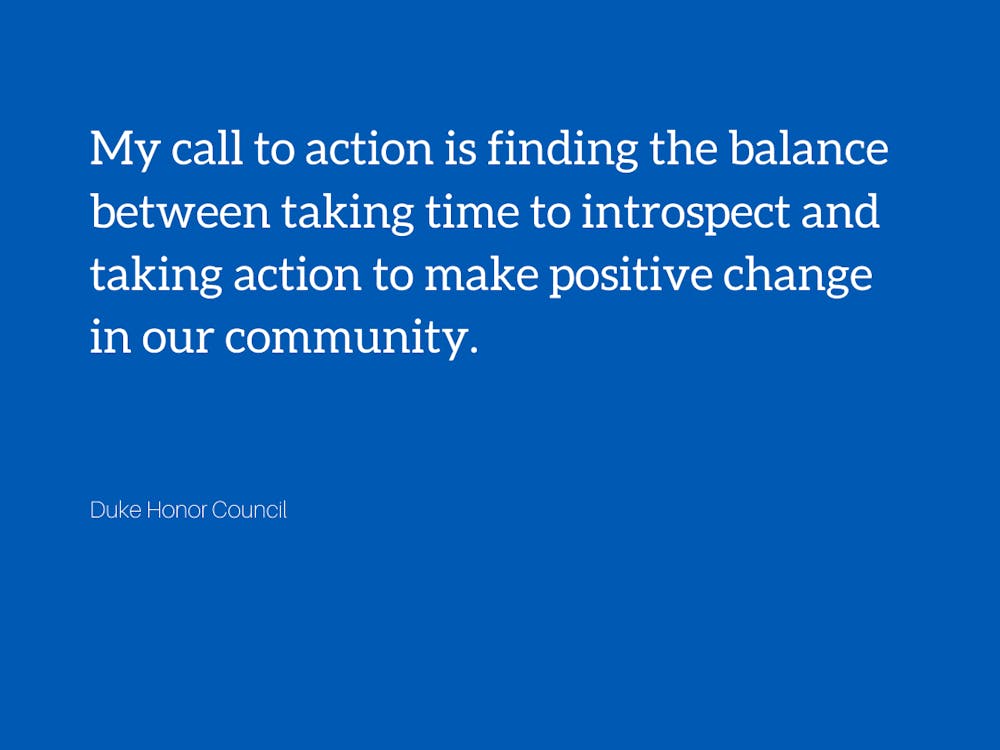My junior year literature teacher wore colorful scarves and sang the Rolling Stones. His recounts from his life along with the works of Shakespeare and Jane Austen and others made his class a collection of stories. As the leaves turned from green to orange outside the classroom window, he had our class read “The Love Song of J. Alfred Prufrock” for a homework assignment one day. The story is about a speaker trapped in his own mind. He goes through cycles of questioning the surrounding world, which leaves him feeling paralyzed and unable to take action.
I recalled this story as I began to craft a Chronicle article about religion and morality. I was writing after an interfaith panel Honor Council hosted about religion framing moral compasses and lifestyles. The discussion was exceedingly nuanced. Processing this event for me became perpetual extrapolation, which caused the writing to seem too lofty. I considered how the article would be more like a potential object of satire for other Chroniclers.
Writing the article critically and truthfully while acknowledging its limitations and that my ideas are in constant flux presented a challenge. One thought led to the next until I was approaching the article with such a broad sweep of multifaceted issues, and I was essentially becoming trapped in my mind—I began seeing my arguments like a nearly unsolvable one-thousand piece puzzle that malevolent designers created without borders or a picture to go off of.
In “The Love Song of J. Alfred Prufrock”, the speaker exists in the world of the mind. There is a tension between “going where the evening is spread out against the sky” and the command “let us go where the evening is spread out against the sky.” This tension is between critically analyzing our selves and our worlds and actually living in them. And per my mother’s impeccable advice—yes, I need to think critically, recognize ambiguity, seek to understand complex themes, but I also need to brush my teeth. I need to step out of the clouds and into my world.
I am ironically considering this elusive balance between considering things all the time and allowing my mind to rest from considering things all the time. Living an examined life calls for both examining and living out the multitudes of mundane moments that constitute living. The balance reminds me of a mountain, which has a surrounding valley—I need time in the valley to spend time on the mountain and vice versa.
This time in the valley is the margin. It is watching the rain without thinking about anything in particular at all. It is being lost in a piano piece just to play, or joining in a basketball game at the end of a day. It is walking around without a destination in mind, or talking with a friend who on the plaza you happen to find. It is an action that breaks up the time the mind is spent in the clouds covering the mountain. In this time, the focus is on the mundane—the teeth I am brushing, the rain I am watching—and it is an embracing of my self and my world. The time on the mountain is also vital in learning and growing. It is a time examining our lives, engaging in necessary and difficult conversations about the crux of issues, and asking questions about purpose and meaning.
Honor Council is a group seeking to climb the mountain, with one foot in the valley and one foot on the peak. We aim to reconcile margin and productivity. We focus on action—the most important part of the Community Standard is indeed taking action in the face of moral wrong—and we also think critically about what is moral wrong, having a higher moral standard for a diverse community, and many other ethical questions. There is a balance between analyzing our organization and focusing outward on taking action in the community. My call to action is finding the balance between taking time to introspect and taking action to make positive change in our community.
When I read and consider opinions and ideas, I find myself recalling again my scarf-donning teacher and his class and how the balance between the margin and mountain meets in stories. Stories bring humanity to the lofty ideas trapped in my mind, and they bring magic to the moments of living.
This column was written by Margaret Gaw, a sophomore Trinity student. Honor Council’s column runs on alternate Tuesdays.
Get The Chronicle straight to your inbox
Signup for our weekly newsletter. Cancel at any time.

